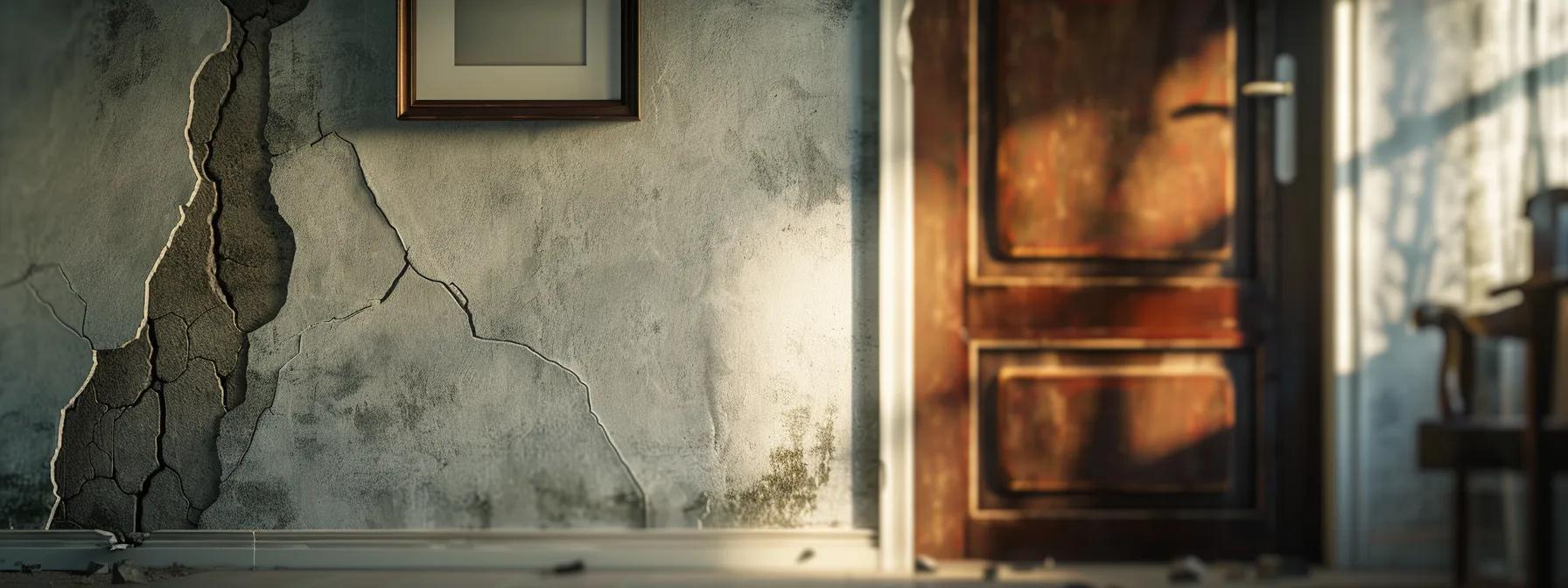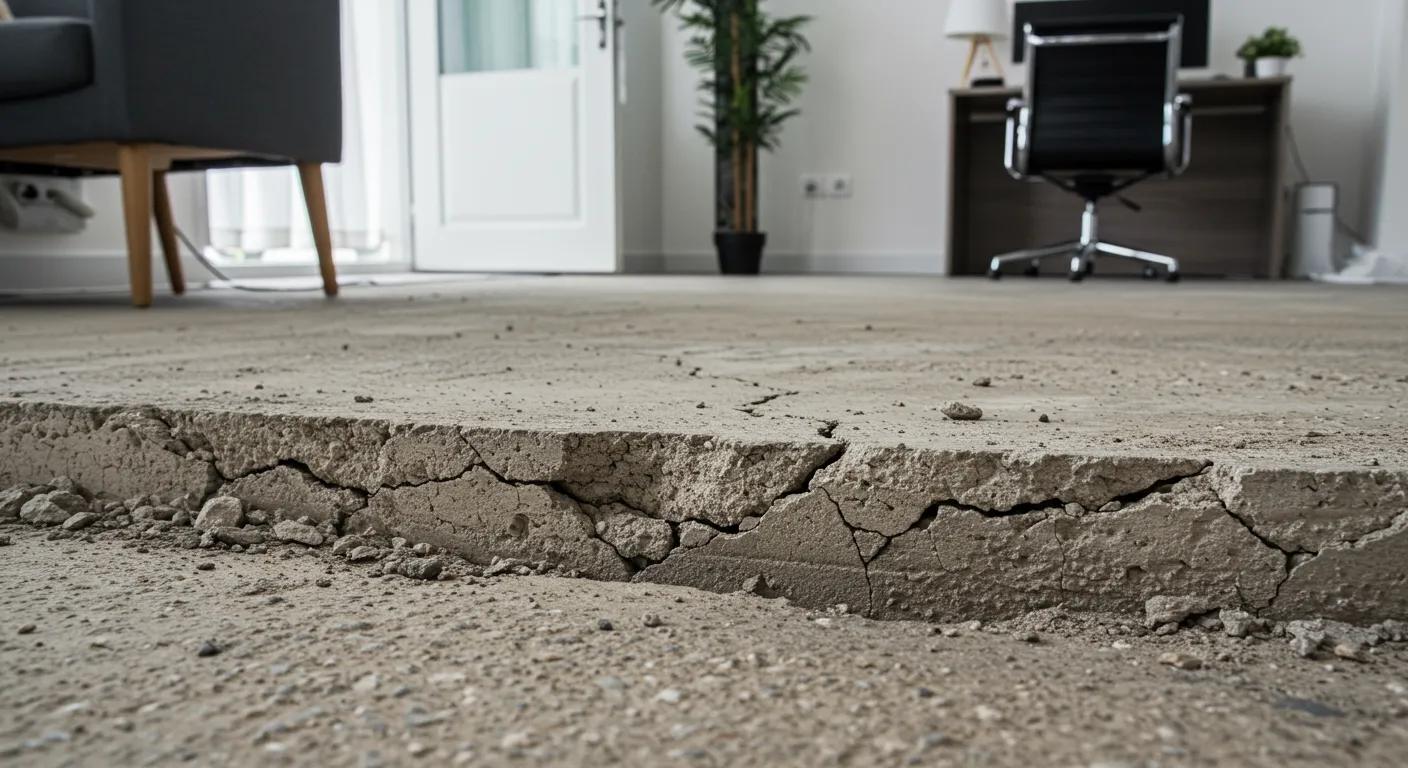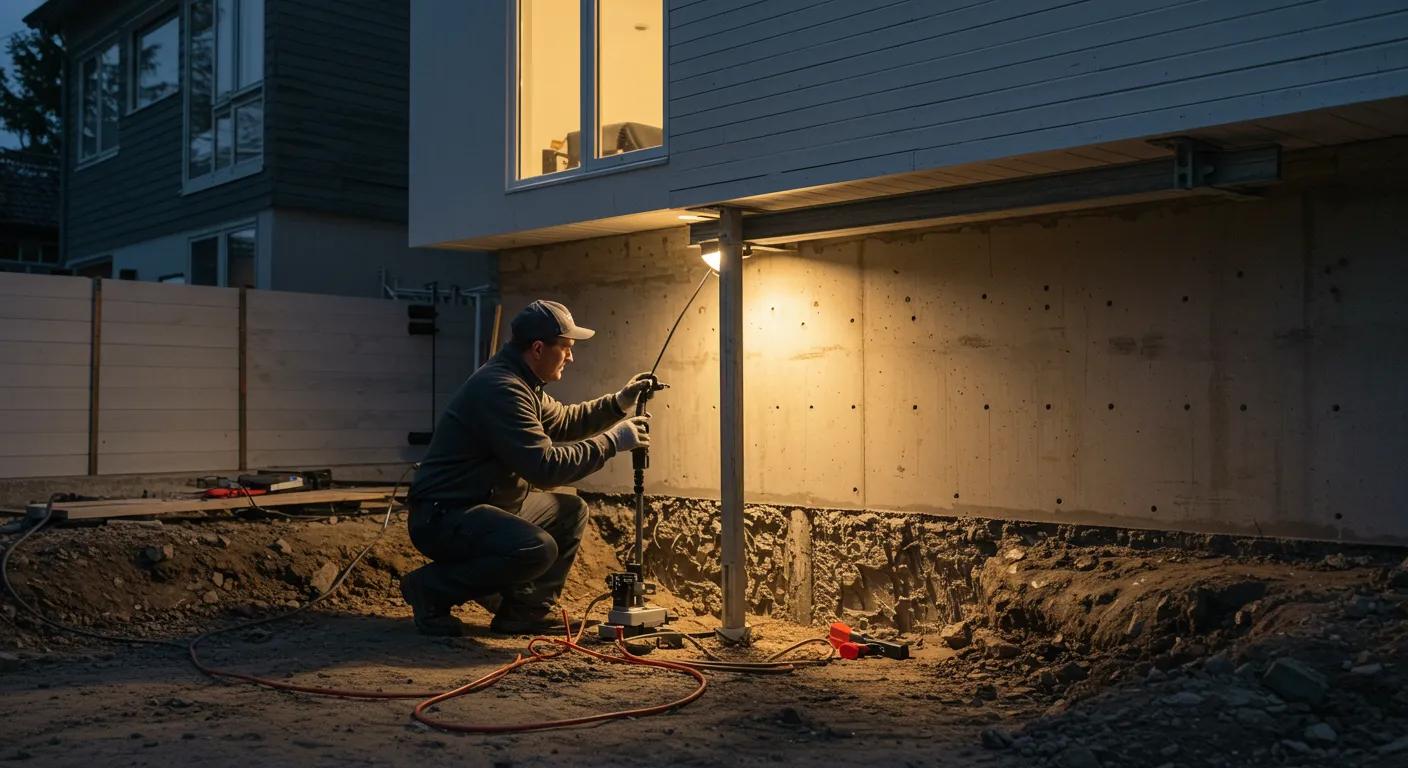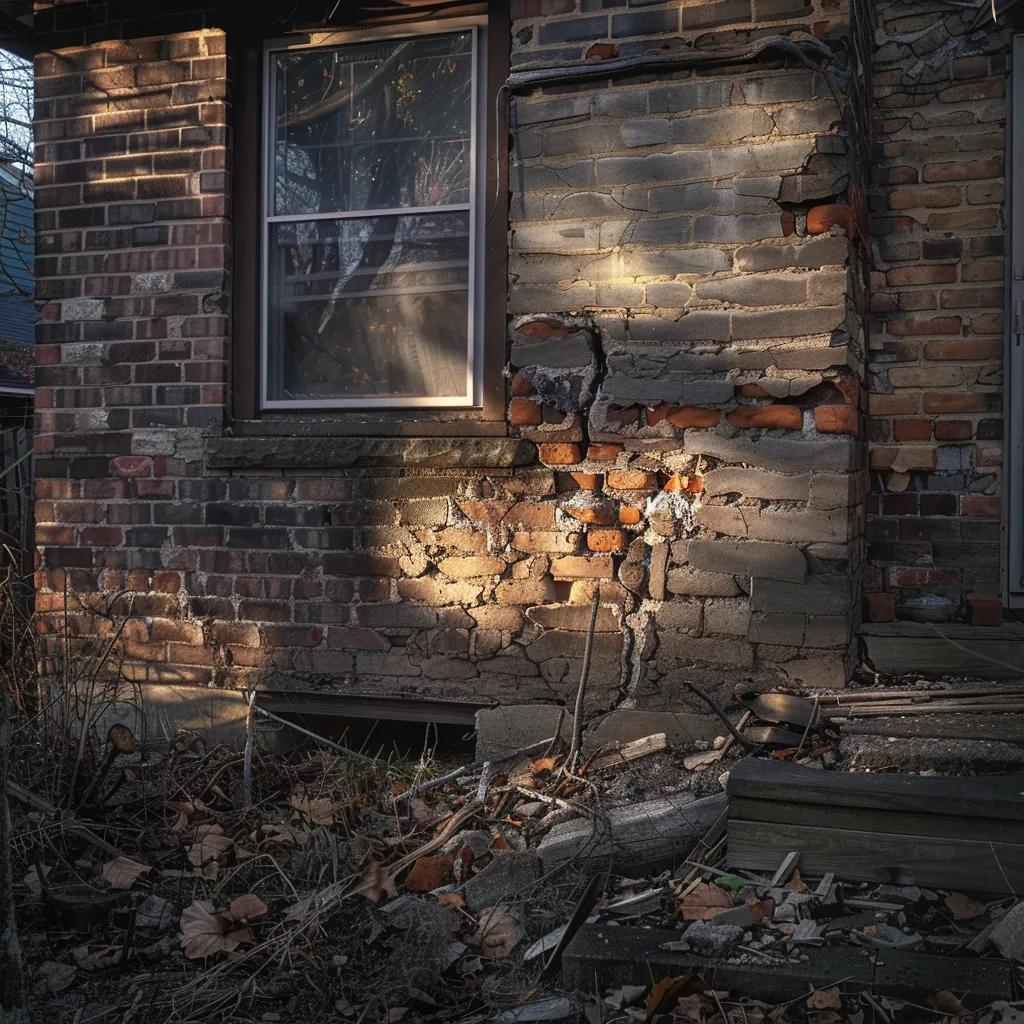How Foundation Problems Influence Property Worth in San Antonio
The value of a property in San Antonio is significantly influenced by its foundation’s condition. Homeowners often overlook foundation issues until cracks, uneven floors, or sticking doors reveal deeper structural problems. This article explains how foundation problems affect property value by outlining common issues, the impact of damage, local regulations, cost evaluations, and maintenance recommendations. Both sellers and buyers can benefit from understanding these factors to negotiate better, make informed repair decisions, and even enhance a home’s market value with appropriate repairs.
In San Antonio, challenging soil conditions, climate, and older construction methods frequently lead to foundation issues. These challenges have immediate safety implications as well as long-term effects on property market value and sale potential. The sections below provide a concise guide to the core queries regarding foundation problems in San Antonio, with emphasis on practical assessments and strategic maintenance so that homeowners, real estate agents, and investors can navigate this complex area successfully.
How Foundation Issues Impact San Antonio Home ValuesFoundation Problems Influence Property Value in San Antonio
Foundation problems compromise a home’s structural integrity, reducing overall market appeal and safety. The foundation is the load-bearing structure; any faults can lead to misaligned walls, uneven floors, or even roof damage. In San Antonio, where soil moisture levels fluctuate and expansive clay is common, the risk of foundation settling or heaving is elevated. This increases repair costs and signals potential hazards to buyers. Visible issues, such as wall cracks or recurring water intrusions, lead appraisers to lower property values. In addition, insurance may be limited on properties with foundation problems, deterring buyers further. Buyer psychology is also affected, as even minor visible defects can result in lower offers during negotiations.
Identify Common Foundation Issues Affecting San Antonio Homes
Typical issues include cracks in foundation walls, uneven or sloping floors, sticking doors and windows, and gaps at ceilings or masonry joints. These problems generally arise from natural settling, water drainage challenges, and the cyclical nature of expansive clay soils, which swell when wet and shrink in dry conditions. Older homes may experience further deterioration of mortar and moisture intrusion, which weakens structural stability. Contractors note that poor water management—resulting from ineffective gutters, inadequate downspouts, or improper grading—can cause water to pool near the foundation, hastening soil erosion and damage.
Assess the Severity of Foundation Damage on Property Value
The extent of foundation damage directly influences property value through repair costs and market perception. Minor issues, like small cracks or slight misalignments, may require only cosmetic fixes or routine maintenance. However, if neglected, these issues can evolve into major structural failures that demand extensive, costly repairs such as underpinning or re-leveling. Appraisers often adjust valuations by deducting a portion—typically 5% to 15%—of the property’s value based on anticipated repair expenses. In well-established neighborhoods, a problematic foundation can stand out against well-maintained homes and cause stricter mortgage conditions and higher insurance premiums.
Explore Local Regulations Impacting Foundation Repairs
Local building codes and permit requirements in San Antonio significantly impact foundation repair projects. All repair work must meet strict safety standards and is subject to inspections by licensed structural engineers. Noncompliant repairs can incur fines or delay property transactions, further reducing market value. Regulations may also dictate specific repair materials, potentially increasing costs. However, meeting regulatory requirements often includes warranties that protect the buyer, slightly mitigating the negative effect on property value.
Recognize Signs of Foundation Problems in Residential Properties

Early detection of foundation issues is key to preserving property value. Common early signs include:
• Visible cracks in walls and ceilings (especially those that widen over time) • Uneven or sloping floors and misaligned door frames • Sticking doors or windows and irregular water drainage around the home
Prompt identification allows homeowners to secure professional inspections before minor issues escalate into major problems.
Review Cracks in Walls and Ceilings as Key Indicators
Cracks—whether hairline or larger, especially in load-bearing walls—are clear indications of potential foundation movement. Cracks near windows, door frames, or junctions of different construction materials require particular attention. Professional inspections help monitor crack progress and determine whether cosmetic patching is sufficient or a more extensive repair is needed.
Monitor Uneven Floors and Doors That Jam or Stick
Uneven floors and doors that no longer operate smoothly indicate that the foundation may be shifting. As structures settle unevenly, floor tiles or wooden boards can misalign, and door frames become distorted. Regular checks using leveling tools can help catch these signs early, prompting timely evaluations that prevent more extensive damage.
Inspect Water Drainage Patterns Around Your Property
Improper water drainage is one of the main contributors to foundation damage. Homeowners should observe how water flows around their home after rain. Pooling water, persistent damp spots on walls, or accumulation in the crawl space signal that drainage systems are insufficient. Corrective measures—such as improved grading, upgraded gutter systems, or the installation of French drains—are essential to divert water from the foundation and reduce long-term damage.
Learn the Cost of Foundation Repairs in San Antonio
Foundation repair costs in San Antonio vary widely, depending on the damage’s extent and the repair method selected. Minor repairs may run between $1,000 and $3,000, while major reconstruction can exceed $30,000. Factors affecting these costs include the severity of the damage, type of repair (such as slab jacking, underpinning, or pier installation), and local labor and material expenses. Appraisers often incorporate these repair estimates when determining a home’s market value. Homeowners must carefully weigh whether to attempt DIY repairs—which can be risky—or employ professional foundation repair companies offering warranties and long-term solutions.
Calculate Typical Costs for Repairing Foundation Issues
For example, simple cosmetic repairs like sealing hairline cracks may cost a few thousand dollars, whereas addressing significant settlement or bowing walls with complex techniques (like installing piers) might cost upwards of $20,000 to $30,000. Obtaining multiple quotes from licensed contractors and detailed written estimates ensures homeowners can effectively plan and budget for these expenses.
Analyze Factors That Influence Repair Expenses
Key factors influencing repair costs include: • Severity and type of damage • Method of repair chosen • Local labor and material costs • Weather and soil conditions • Accessibility of the repair site • Contractor reputation and warranty coverage
These variables help determine both the initial repair expense and long-term financial implications of foundation problems.
Compare DIY Repair Options Versus Professional Services
While DIY repairs might seem attractive due to lower upfront costs, foundation repair involves complex structural considerations and typically requires specialized expertise. Incorrect repairs can lead to further damage, undermining property value and safety. Professional companies provide certified assessments, proven repair techniques, and warranties that offer long-term stability and improved resale value.
Discover How to Evaluate Property Worth With Foundation Issues

Evaluating a property with foundation issues involves combining structural assessments with current market trends. Appraisers consider both the cost of necessary repairs and the consequent reduction in market value. Comparing the subject property with similar, well-maintained homes in the neighborhood (often referred to as “comps”) helps determine an adjusted market value. For instance, a home originally valued at $300,000 might sell for considerably less if foundation problems are evident. However, professional repairs can restore much of the lost value, underscoring the importance of a cost-benefit analysis in evaluation.
Utilize Real Estate Market Trends to Gauge Value Impact
Market trends in San Antonio show that significant foundation damage can reduce resale value by 5% to 15%. Properties that have been repaired by professional foundation repair companies tend to reattain value more effectively. Real estate agents and property appraisers use several valuation models—combining direct repair costs and market comparisons—to provide homeowners with a realistic estimate of their investment’s future value.
Examine Neighborhood Comparables for Accurate Property Assessment
By reviewing recent sales of nearby properties with similar characteristics, appraisers can adjust market values based on visible foundation issues. For example, if comparable homes in a stable neighborhood sell for around $350,000 while a property with foundation issues is listed for $300,000, buyers can negotiate based on the estimated repair expense. Detailed comparative market analyses (CMAs) further support informed decision-making in negotiations.
Find Qualified Inspectors for Foundation Assessments in San Antonio
A thorough inspection by qualified professionals is essential for diagnosing foundation issues accurately. Licensed structural engineers provide detailed reports including visual documentation, measurements, and repair recommendations. Homeowners should seek referrals from reputable sources such as real estate agents, construction companies, and community networks to ensure that they enlist inspectors with proven local expertise.
Identify Licensed Structural Engineers in Your Area
Licensed structural engineers are crucial in diagnosing both minor and major foundation issues. In San Antonio, they are regulated by the Texas Board of Professional Engineers and typically have significant local experience. Their comprehensive inspections include visual assessments, material evaluations, and use of specialized equipment. Detailed reports they produce often include repair methods, estimates, and timeframes—all of which can support negotiations with lenders and insurance companies.
Gather Recommendations for Trusted Foundation Specialists
Beyond structural engineers, recommendations for trusted foundation repair specialists are invaluable. Homeowners should request referrals from local real estate agents and building inspectors, and review online forums dedicated to home repairs. Reliable companies typically offer warranties on their work, further supporting the long-term stability and market value of the property.
Implement Solutions to Mitigate Foundation Problems

Proactive measures to address foundation issues can preserve or even increase property value over time. Regular inspections, moisture control, and effective drainage solutions help prevent minor problems from evolving into major structural concerns. Timely repairs and maintenance not only restore structural integrity but also enhance market appeal, potentially increasing the long-term resale value of the home.
Create a Maintenance Schedule for Preventative Measures
A regular maintenance schedule is essential. Homeowners should have annual professional inspections and perform routine checks for cracks, uneven floors, and water pooling. Seasonal tasks such as gutter cleaning and evaluating downspout functionality can catch issues early, saving thousands of dollars in repair costs over time and ensuring a stable, well-valued property.
Invest in Landscaping Techniques to Protect Your Foundation
Proper landscaping can control water flow and reduce soil erosion. Techniques such as building retaining walls, creating appropriate grading slopes, and installing drainage channels help divert rainwater away from the foundation. Meanwhile, careful planting of trees and shrubs with non-invasive root systems enhances soil stability. Consulting landscaping professionals familiar with local soil conditions ensures these measures are both effective and aesthetically pleasing.
Select Proper Drainage Systems to Prevent Water Accumulation
Advanced drainage systems—such as French drains and surface drains—are vital in preventing water from pooling around the foundation. In San Antonio’s climate, integrating these systems with existing gutters and downspouts significantly reduces soil erosion and water damage. Professional evaluations can determine the most efficient configuration for each property, further protecting structural integrity and maintaining market value.
Table: Foundation Repair Factors and Cost Comparison
Before repair methods are chosen, it is useful to review key factors affecting costs and property valuation:
Table: Maintenance and Prevention Measures for Foundation Health
A quick reference for preventive investments:
Final Thoughts
Foundation issues can dramatically reduce the value of San Antonio properties if ignored. Understanding common foundation problems, detecting early signs, and investing in regular inspections and preventive maintenance are crucial steps to protect your home. Timely professional repairs not only restore structural integrity but also enhance market appeal and long-term financial stability.
Frequently Asked Questions
Q: How do foundation problems affect property value in San Antonio? A: They lower property value because repairs to restore structural integrity often require significant investment, and visible issues lead to buyer hesitation and lower appraisal values.
Q: What are the most common foundation issues in San Antonio homes? A: Common issues include cracks in walls and ceilings, uneven or sloping floors, sticking doors or windows, and poor water drainage—all linked to soil movement and moisture-related damage.
Q: How much can foundation repair costs impact the sale price of a home? A: Repairs can reduce a home’s market value by 5% to 15%, as buyers factor future repair costs into their offers.
Q: Can DIY foundation repairs be a cost-effective solution? A: While DIY repairs might reduce upfront costs, foundation work requires specialized expertise. Incorrect repairs can worsen problems and further diminish property value, making professional services—offering certified assessments and warranties—a safer long-term choice.
Q: What role does proper water drainage play in maintaining foundation integrity? A: Proper water drainage prevents water accumulation near the foundation, reducing soil erosion and moisture damage. Systems like French drains and well-maintained gutters are essential in avoiding foundation settling.
Q: How can landscaping and maintenance protect a home’s foundation? A: Thoughtful landscaping, including proper grading and drainage installations, controls water flow away from the foundation. Regular maintenance, such as gutter cleaning and professional inspections, can detect early signs of issues, thereby preserving the home’s value.
Q: What should homeowners do if they suspect foundation damage? A: They should immediately contact a licensed structural engineer or foundation repair specialist for a comprehensive inspection. Early detection and professional evaluations allow for timely repairs, protecting both structural integrity and market value.


